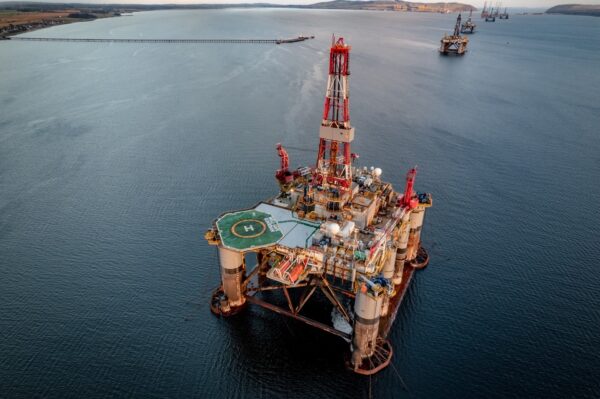The marine conservation campaign group, Oceana, is preparing to take the UK government to court, claiming the decision to issue North Sea oil and gas licences without taking into account their impact on the environment was unlawful.
The decision to issue the new licences was unlawful on several grounds, says the charity, including a failure to consider the extreme impacts of both accidental oil spills and the climate crisis on marine life. In addition, both the Secretary of State for Energy Security and Net Zero and the North Sea Transition Authority (NSTA) ignored advice from independent government experts about the potential effect on Marine Protected Areas (MPAs), Oceana claims.
Oceana UK has written to Energy Secretary Claire Coutinho, setting out its concerns and signalling the start of the judicial review process.
Some 82 licences for exploratory oil and gas drilling operations were issued by NSTA between October 2023 and May 2024. The licences cover 226 areas (blocks), and over a third overlap with MPAs.
Oceana UK says the ‘Appropriate Assessments’ for the blocks, published by the Offshore Petroleum Regulator for Environment and Decommissioning (OPRED) for the Secretary of State under the Habitat Regulations 2017, were unlawful.
It says the NSTA decision on 3 May 2024 to award Tranche 3 licences was also unlawful, on the same basis.
“This is not a case of misunderstanding or lack of information. This is a deliberate choice to unlawfully ignore expert advice and jeopardise our seas, climate and future.” Hugo Tagholm, Executive Director of Oceana UK, said.
“The next Government should withdraw licensing areas that overlap with Marine Protected Areas and regulate to end all damaging industrial activities in these critical areas for wildlife, including over-fishing and fossil fuel industries.” said Richard Benwell, Chief Executive of Wildlife and Countryside Link (who is not involved in the action).
A spokesperson for the North Sea Transition Authority told the Guardian: “We do not comment on potential litigation matters.”
Oceana UK claim that according to case law from the Court of Justice of the European Union, which still applies to the UK, an Appropriate Assessment must “contain complete, precise and definitive findings and conclusions capable of removing all reasonable scientific doubt as to the effects of the work proposed on the protected site concerned”.
When OPRED published its final assessments on 3 May 2024, the documents suggested the latest tranche of licences would have no adverse effect on MPAs, which Oceana UK says does not reflect advice provided by the JNCC.
In its pre-action protocol letter, Oceana UK says the Secretary of State has ignored the advice of its statutory advisors on the central issue of whether there is no reasonable doubt about adverse effects on the relevant sites and has failed to provide cogent reasons for ignoring the advice.
Oceana UK believes that this means the Secretary of State’s reliance on the Appropriate Assessments is unlawful and the NSTA’s decision to award the licences, based on these assessments, is also unlawful.
Downstream emissions
The potential legal challenge over the most recent licensing round comes as the Supreme Court prepares to issue its ruling in a case focused on downstream emissions which could impact North Sea oil and gas projects, says Energy Voice.
The ruling in the Finch case will determine whether it was lawful for Surrey County Council to approve an onshore oil development without requiring an assessment of downstream emissions.
Legal experts say the outcome in the Finch case could change the assessment process for all fossil fuel projects in the UK.
Grounds for judicial review
Ocean UK’s grounds for the review would be:
- Failure to consider the impact of accidents, which is contrary to the requirements of the Habitats regime and contrary to the duty to take reasonable steps to obtain the relevant information in order to reach a rational decision (the Tameside duty);
- Failure to consider the ongoing impact of climate change on the relevant marine sites and environment, again, contrary to the requirements of the Habitats Regulations and the Tameside duty;
- A flawed assumption that only 50% of the licensed drilling will actually take place;
- Failure to adequately assess the cumulative impacts of the licensed activity on the relevant sites; and
- Failure to consider or pay due regard to the advice of the JNCC in relation to the matters raised by a number of the above points.
